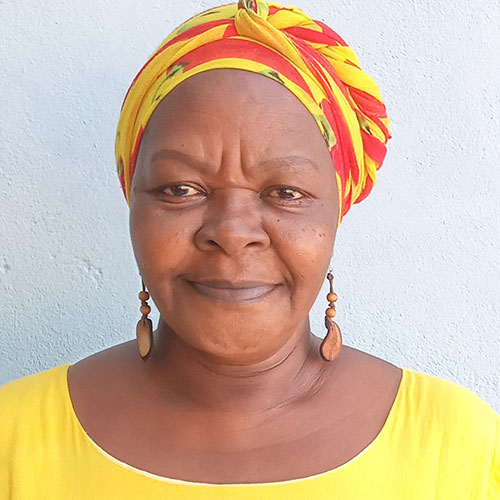Discover MUF, a living open-air museum
The MUF - Museu de Favela, was conceived and created by residents, mostly women, and by outsiders. It is a territorial museum, and comprises the entire set of interconnected favelas such as Morro do Pavão and Pavãozinho in Ipanema and Morro do Cantagalo in Copacabana, South Zone of Rio de Janeiro.


The MUF is a living museum, which is constantly changing, being composed of two categories of collections, material and immaterial.
The immaterial comprises the stories and memories of the residents, the daily life, the way of life, the local culture and the territory itself. The material collection, on the other hand, is the published books, as an exhibition at the museum’s operational base, producing handicrafts, objects, and others.
Márcia Souza, founder and deputy director of the MUF, says that the purpose of creating the museum has always been the practice of valuing the identity of the residents and everything that exists within the PPG, Pavão, Pavãozinho and Cantagalo. Which involves architecture, speeches, children and local culture. Today, the purpose is to transform the entire territory into an icon of visitation in the State of Rio de Janeiro.
The MUF varies several projects, among them are:
Women Warriors Award
Annually we select 12 women and the interviews, a summary of their stories followed by a photo, are printed on ‘banners’ in the month of September during the “Primavera dos Museus”, the exhibition of this material happens at the operational base, headquarters of the MUF. A tribute and event accompanied by a soirée or afternoon tea, giving during which award.
Velhos Ilustres
People and memories of the construction, people who built the family, people who built the favela. It takes place along the same lines as the Women Warriors project.
This exhibition is not a Museum restricted to the MUF, it tours other museums such as Ingá, Palácio Rio Negro and others, in addition to community museums.
CINEMUF
It shows films in partnership with other projects and films from the MUF collection.
Toy library
Offers playful-pedagogical activities and developed for the intellectual development of children.
Itinerant library
An action where volunteers leave the library to “walk” through three favelas and set up, in the streets, spaces for reading and storytelling. The MUF operational base also has a library with a large collection of books.
Márcia Souza, talks about the challenges faced by the MUF and the involvement of the residents of the favelas involved
“Our first challenge was to get a headquarters, we received two eviction letters when we were occupying another space, but with the intervention of the Superintendence of Museums of RJ, this is now solved. We signed a transfer term for the use of the current space, which has become our Operational Base for 20 years. Today the provocation is another, to transform the MUF into an organization, self-sustaining.”
Márcia says that the favela embraced the idea of preserving memory and that young people began to be interested in knowing the history of these territories.
Rita de Cássia Santos, journalist, Founding Partner and responsible for the management of research, collection and memory, talks about the Velhos Ilustres project
“It is very important for these people to tell their stories, they strengthen the favela. They are stories of people who survived removals, abandonment and social exclusion. These favelas survived thanks to them. We value people in life, most of them have passed away, but their stories are protected here, at the Favela Museum. If relatives of these people come from another state and visit us, they find here a place of warmth and memory recovery.”
Rita Santos is co-author of two published books about the MUF. She says that the Favela Museum is a way of valuing the place that welcomed them and gives local young people a sense of belonging. She encourages each favela to create its own museum.
Income generating activities
The income from these activities is to pay for the inputs needed to keep the museum in operation, they are:
Circuit “Casas Tela, Caminhos de Vida do MUF”
During this circuit, is introduced the history of occupation and formation of the three favelas through art on the walls and orally;
Eco Trail
Open to all, but the Favela Museum accepts requests for guidance;
Coworking
It works in the library, and the shop, where pieces made by artisans from the MUF Network and books about the museum can be purchased.
“The Favela Museum is waiting for your visit and sharing this immense wealth of collective memories.” Ends Rita Santos.
The MUF Operational Base – located at Alberto de Campos, 12, 4th floor, Ipanema, RJ.


For more information, visit the website by clicking here.
To donate, click here.
Buy at the MUF store.
Contact for guided tours: Querovisitar@museudefavela.org



